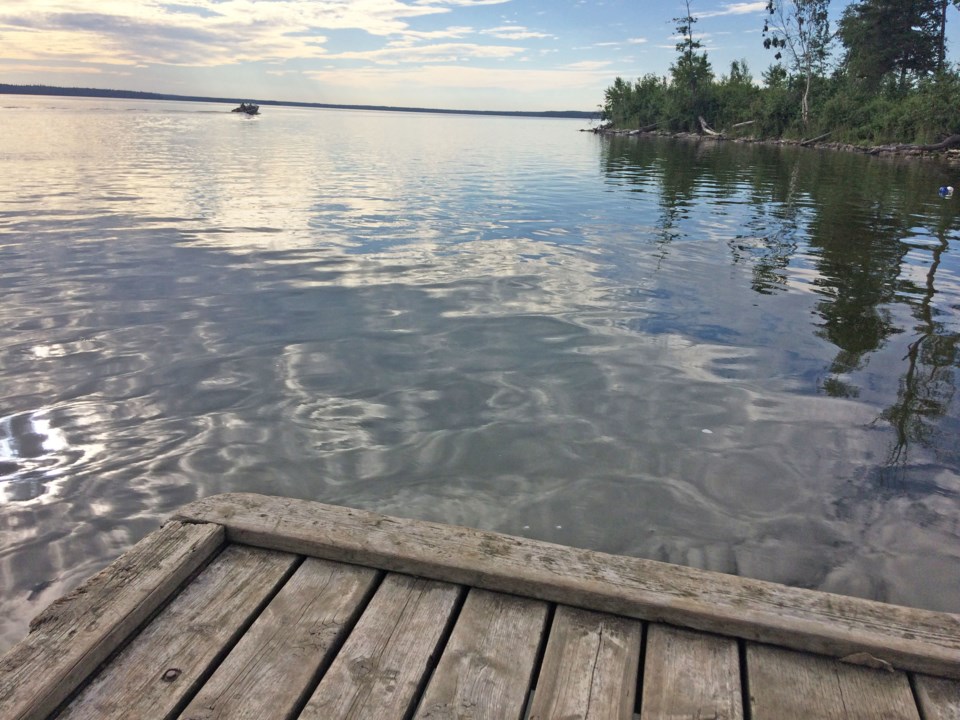LAKELAND, Alta - Declining oxygen and water levels in lakes across northeast and central Alberta have been affecting the survival of fish species, says Ray Makowecki, a retired biologist and sustainable fishing advocate for the region.
The decline, which has been happening for years, is not only impacting the survival of some fish species but also recreational fishing opportunities for both anglers and tourists alike, he added. Makowecki says the response from provincial officials has been to restrict anglers with tougher regulations, catch limits and lake closures instead of looking at key environmental factors that are reducing fish stocks.
Utilizing aeration systems to replenish oxygen, increasing water levels and transplanting more species that are declining or endangered in lakes to sustain fish year-round are part of the many avenues to create solutions and support Albertans’ fishing needs, said Makowecki.
“Aeration has been used in several lakes over the winter. Let’s look at these options to increase fish production as opposed to totally restricting it,” he said.
Findings
Through the Northeast and Central Alberta Lakes Fish Habitat Restoration Feasibility Winter 2021-22 Monitoring Report, Makowecki and a handful of volunteers conducted a study and tested 13 lakes across north and central Alberta to find solutions. The report was released this spring and looked at oxygen, water and population levels of various fish species native to the lakes across the area. The recommendations from the report would create not only healthier ecosystems but also sustainable fishing opportunities, he explained.
“Some of these lakes, if you can get them back with a little bit of improvement in their habitat, maybe these are ways to increase fish production and then allow more fishing opportunities,” he told Lakeland This Week.
A few of the bodies of water tested in the Lakeland region are in the province’s Northern Boreal Watershed Zone 1, which includes the Athabasca River and Beaver watershed areas. The 2022 Alberta Guide to Sportfishing Regulations informs anglers and tourists what fish are allowed to be harvested and at what size depending on the Fishing Sustainability Index (FSI). Makowecki says the FSI consistently impacts the opportunity for anglers to collect walleye and pike species.
Ultimately, it's a metric that needs work.
“The Fish Sustainability Index - those numbers are the ones that could be removed to say do we have flexibility there. When you start closing pike harvest in areas like Lesser Slave Lake - a lake that is 104 km long (based on the index formula) that’s a major change in terms of harvesting.”
Additionally, the continuing restrictions hurt overall communities that may rely in some part on the fishing industry, said Makowecki.
“You go to a place like Pinehurst it's a tremendous lake, but you can’t keep a walleye or pike. Then it becomes a real concern to people because that is a major attraction lake to people,” which he says is a negative impact on the recreational industry.”
Some of the lakes in the study included the St. Paul Trout Pond, Minnie Lake (northeast of Glendon), Bonnie Lake, Cache Lake and Muriel Lake, where pike and walleye limitations are in place, he said, which are being monitored by the Fish Habitat Restoration Project Committee who conducted the study.
“We are monitoring some of these lakes to see if they’ll come back and there are places where there is an opportunity to return fish to those lakes that didn’t have high enough water levels and the oxygen levels were too low to support fish.”
The findings of the report, as well as constant updates from a local group called the Next Step Team, which is made up of regional elected officials and business leaders, are shared with provincial officials.
Makowecki has been leading the charge on the fishing issues for more than a decade, and ultimately he hopes to see the provincial regulations accurately portray what sustainable fishing is, replenish ecosystems, and navigate ways to allow fishing in lakes that can support the sport and recreation industry in the region.




